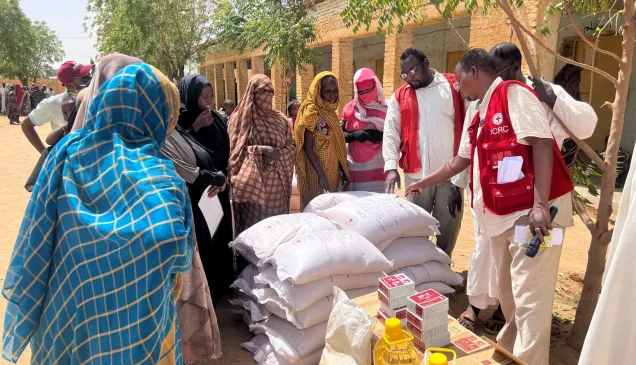Thirty-three surgeons from different parts of Libya have just concluded a two-day training course supported by the ICRC in surgery on weapon-wounded patients. A further 15 surgeons have completed three days of training in the management of trauma cases in emergency rooms.
Held in Tunis, the courses aimed at enhancing the skills of surgeons working in conflict-hit areas of Libya. "These surgeons are hard at work every day – in hospitals, on the front line – caring for the wounded and saving lives. The ICRC has over 150 years of experience performing war surgery in conflict zones, where regular medical services may be limited or lacking entirely," said Antoine Grand, head of the ICRC delegation in Libya. "Courses such as these meet the very real needs of Libyan doctors, who are playing a difficult and heroic role in the current situation." The ICRC has provided supplies for over 20 health-care facilities in the country since July.
According to Carmen Carrillo, the ICRC's health coordinator in Libya, "those attending the courses had the opportunity not only to sharpen their skills but also to exchange experiences with ICRC doctors." The participants also discussed the problems they face as they endeavour to treat conflict casualties with extremely limited resources in a dangerous working environment.
"Because of the tension, not all wounded or sick people are able to reach the hospital," said one doctor from Sabha. "In addition, armed men come to the hospital regularly; they do not respect the sanctity of the hospital and frequently insult and threaten the staff. As a doctor it is difficult to work in such a situation."
"Benghazi Medical Centre and the recently reopened Al-Jala Hospital are overburdened because of the closure of all other health-care facilities in the city," said another practitioner, from Benghazi. "You never know when a mortar shell can hit you, even inside the hospital – as happened three days ago. If you have an emergency at night, you have to wait until sunrise to be able to go to the hospital. Numerous armed checkpoints and the lack of respect for health staff and facilities, and for ambulances, obstructs the transport of the wounded and the sick to hospitals."
The ICRC, which has organized seven such courses in Libya since 2011, is carrying on its work in the country with 140 local staff based in Tripoli, Benghazi, Misrata and Sabha and international staff temporarily relocated in Tunis. The ICRC works in close partnership with the Libyan Red Crescent and other local partners.
For further information, please contact:
Salah Uddin, ICRC Tunis, tel: +216 26 903 485



